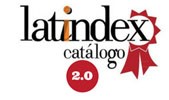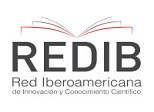Management Accounting:a Tool for Business Decision-making
DOI:
https://doi.org/10.69890/hallazgos21.v3i3.318Keywords:
Management accounting; accounting system; decision- making; planning; financial statements.Abstract
Management accounting has become a fundamental instrument for companies, because it provides the organization with relevant information for proper control and decision- making, given that business success is measured through an accurate management not only of material, economic-financial and human resources, but also by the impact they can have on the business environment. Business activities are currently characterized by their complexity. Each monetary operation in them carries a factor called uncertainty; An adequate management of this component constitutes what is known as "successful decision- making".
Traditional accounting systems do not consider internal accounting reports that allow us to measure, among other aspects, the company capacity to generate liquidity, solvency, level of indebtedness and profitability.
It is important not only to consider the view that accounting generates financial statements, but it is a tool for measuring management that is reflected in the decision- making that guarantees the presence of the organization as an ongoing entity.
In the context of this analysis, the different decisions that emerge from the modern conception of accounting, such as management accounting, will be addressed in order to achieve an improvement in products, in production processes, in purchasing decisions, in prices, in clients and, above all, in the total quality. In the present investigation we will analyze the context of the first administrative function: planning.
References
Giner Fillol, A., Pontet Ubal, N.; Ripoll Feliu, V. (2007 c) La contabilidad de costes y el CMI: un apoyo básico al Plan Estratégico de la Autoridad Portuaria de Valencia (APV). Partida Doble, Revista de Contabilidad, Auditoria y Empresa, 194, 60-79. Recuperado de <a href=http://revistas.javeriana.edu.co/index.php/cuacont/article/view/3241 target="_blank">http://revistas.javeriana.edu.co/index.php/cuacont/article/view/3241</a>
Iglesias Sánchez, José Luis (2003) “Contabilidad de Gestión. Una aplicación a la toma de decisiones en la empresa”. Material del curso de Maestría de Contabilidad de Gestión. Valencia: Universidad de Valencia.
Lebas, M. (1994). Managerial Accounting in France; Overview of Past tradition and Current Practice, European Accounting reviews, 3 (3). Recuperado de: <a href=https://www.tandfonline.com/doi/abs/10.1080/09638189400000032 target="_blank">https://www.tandfonline.com/doi/abs/10.1080/09638189400000032</a>
Meigs, R. (2016). Contabilidad: La base para decisiones gerenciales. Mcgraw-Hill. 11va edición.
Ortega, Pérez y Orza (2015): Universidad Nacional Abierta Dirección de Investigación y Postgrado Maestría en Ciencias de la Educación Mención Administración Educativa.
Pérez Barral, O., Alarcón Quinapanta, M. del R., Peñaloza López, V.L., & Mora Rivera, J.B. (2008). Diseño del Sistema ABC para el sector hotelero. Revista Iberoamericana de Contabilidad de Gestión. Valencia. 1 (1). Recuperado de <a href=http://www.gestiopolis. com/recursos4/docs/ger/sistemabc.htm target="_blank">http://www.gestiopolis. com/recursos4/docs/ger/sistemabc.htm</a>
Polimeni, F., Fabozzi, J., Adelberg, A.H., & Kole, M.A.(2000) Contabilidad de Costos. Conceptos y Aplicaciones para la Toma de Decisiones Gerenciales. México. McGraw-Hill
Sáez Torrecilla,A., Fernández Fernández, A., & Gutiérrez Díaz, G. (2009). Contabilidad de Costes y Contabilidad de Gestión. Madrid, Epsaña: Editorial McGraw-Hill Interamericana.
Shank, J. & Govindarajan, V. (1997). Gerencia Estratégica de costas. Colombia; Grupo Editorial Norma.
Wordpress. (03 de 06 de 2012). 3 T1 Sistema. Obtenido de 3 T1 Sistema: <a href=https://isileiva.wordpress.com/2012/06/03/37/ target="_blank">https://isileiva.wordpress.com/2012/06/03/37/</a>
Downloads
Published
How to Cite
Issue
Section
License
Los artículos enviados a la Revista Científica Hallazgos21 deberán ser totalmente originales e inéditos.
Los autores son los responsables de los textos y las imágenes incluidas en los artículos y no necesariamente reflejan el pensamiento de la editorial o de la Pontificia Universidad Católica del Ecuador, Sede Esmeraldas (PUCESE).
Los autores disponen cederle a la Revista Científica Hallazgos21 todos los derechos inherentes para la edición, publicación y distribución o divulgación del mismo.
Se autoriza a las revistas firmantes de los acuerdos de Encuentros de Revistas Latinoamericanas para reproducir en parte o totalmente los artículos con la sola mención de la fuente claramente señalada.







